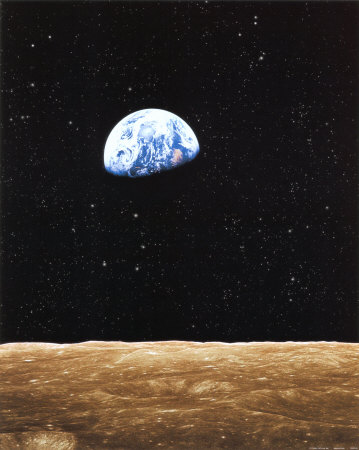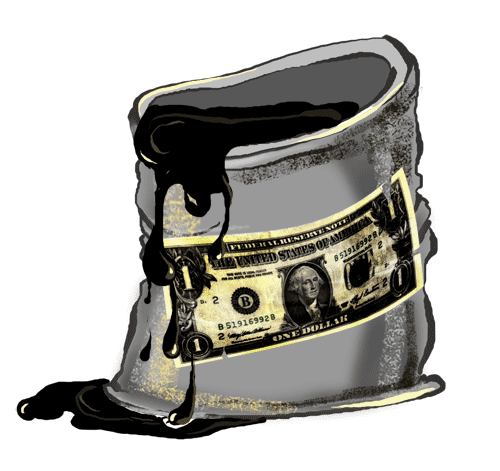capitalism
What if the state of the world were measured by its majority?

What real democracy looks like: a communal council in Merida votes for its electoral commission in July 2010.
Fred Magdoff: Creating an ecological civilisation

By Fred Magdoff
``It is inconceivable that capitalism itself will lead directly to an ecological civilization that provides the basic needs for all people. However, building an ecological civilization that is socially just will not automatically happen in post-capitalist societies. It will occur only through the concerted action and constant vigilance of an engaged population.''
January 2011 -- Monthly Review -- Given the overwhelming harm being done to the world’s environment and to its people, it is essential today to consider how we might organize a truly ecological civilization—one that exists in harmony with natural systems—instead of trying to overwhelm and dominate nature. This is not just an ethical issue; it is essential for our survival as a species and the survival of many other species that we reverse the degradation of the earth’s life support systems that once provided dependable climate, clean air, clean water (fresh and ocean), bountiful oceans, and healthy and productive soils.
Los seres humanos como centro de nuestro socialismo

[English at http://links.org.au/node/2042.]
Por Federico Fuentes, traducido por Janet Duckworth
Resena sobre libro, La alternativa socialista: el verdadero desarrollo humano, de Michael Lebowitz
Green Left Weekly/Links International Journal of Socialist Renewal -- La llegada de la crisis económica mundial a mediados de 2008, simbolizada por el colapso de algunas de las empresas más icónicas de Wall Street, condujo a un incremento vertiginoso de las ventas de El Capital, la obra maestra de Carlos Marx, porque mucha gente buscó una explicación de los acontecimientos apocalípticos que se estaban desarrollando.
What the Dickens? — a tale of two Scrooges

By Christopher Phelps
Putting humans back into socialism

Review by Federico Fuentes
The Socialist Alternative: Real Human Development
By Michael Lebowitz
Monthly Review Press, 2010
December 5, 2010 -- Green Left Weekly -- The onset of the global economic crisis in mid 2008, symbolised by the collapse of some of Wall Street’s most iconic companies, led to soaring sales of Karl Marx’s seminal work Das Kapital, as many sought explanations to the tumultuous events unfolding. Although written more than 100 years ago, this devastating and insightful dissection of how capital functions is still a powerful tool for people looking to understand and change the world.
Marx’s aim was to provide a handbook for working-class activists that unravelled the logic of capital and its inherently exploitative nature. Marx said this was necessary because as long as workers did not understand that capital was the result of their exploitation, they would not be able to defeat their enemy.
The left cannot ignore China’s achievements, but neither can it be too celebratory

Rural poverty in China is much higher than urban poverty.
Τζον Μπέλαμι Φόστερ: Μια οικολογική επανάσταση ενάντια στον καπιταλισμό
The Ecological Revolution, Making Peace with the Planet
John Bellamy Foster
Νέα Υόρκη: Monthly Review Press 2009
σελ. 328.
Του Σάιμον Μπάτλερ*
[Αγγλική εκδοχή σε http://links.org.au/node/1193.]
Video: `The Story of Electronics' -- Designed for the dump (from the makers of `The Story of Stuff')
November 10, 2010 -- From the makers of The Story of Stuff and the The Story of Cap and Trade, Annie Leonard presents the latest episode in the series, The Story of Electronics. Like the first film, Leonard simply explains in plain English how an economy based on endless production of commodities for profit's sake creates waste and pollution and poisons people and the planet. While she urges consumers to make wiser choices when they shop, she also points out that it is the nature of the present system of ownership and production, and its lack of adequate regulation, that has to be changed to really make a difference. You can download the annotated script of The Story of Electronics HERE.
`Productivism' or liberation? Socialists debate consumerism

By
Ben Courtice, Melbourne
November 2, 2010 -- In a recent seminar on trade unions and the climate movement, I observed a surprising disagreement between some of the socialists present. It was started by a comment from Melbourne University academic (and Socialist Alliance activist) Hans Baer, who suggested that the “treadmill of production and consumption” had to be challenged, that we need to challenge consumerism and the alienation of work that makes people buy things to feel better.
Liz Ross of Socialist Alternative took umbrage at this, declaring that workers should create and enjoy wonderful technological products, tearing down a straw figure that Hans was supposedly arguing to stultify the creativity of the working class.
Turning the tide of oil in US and world politics

By Dan La Botz
Grameen Bank and `microcredit': The `wonderful story' that never happened

Mohammad Yunus accepts the 2006 Nobel Peace Prize.
Far from being a panacea for fighting rural poverty, microcredit can impose additional burdens on the rural poor, without markedly improving their socio-economic condition, write Patrick Bond and Khorshed Alam.
October 21, 2010 -- Pambazuka News -- For years, the example of microcredit in Bangladesh has been touted as a model of how the rural poor can lift themselves out of poverty. This widely held perception was boosted in 2006 when Mohammad Yunus and Grameen Bank, the microfinance institution he set up, jointly received the Nobel Peace Prize. In South Asia in particular, and the world in general, microcredit has become a gospel of sorts, with Yunus as its prophet.
Consider this outlandish claim, made by Yunus as he got started in the late 1970s: "Poverty will be eradicated in a generation. Our children will have to go to a `poverty museum' to see what all the fuss was about."
